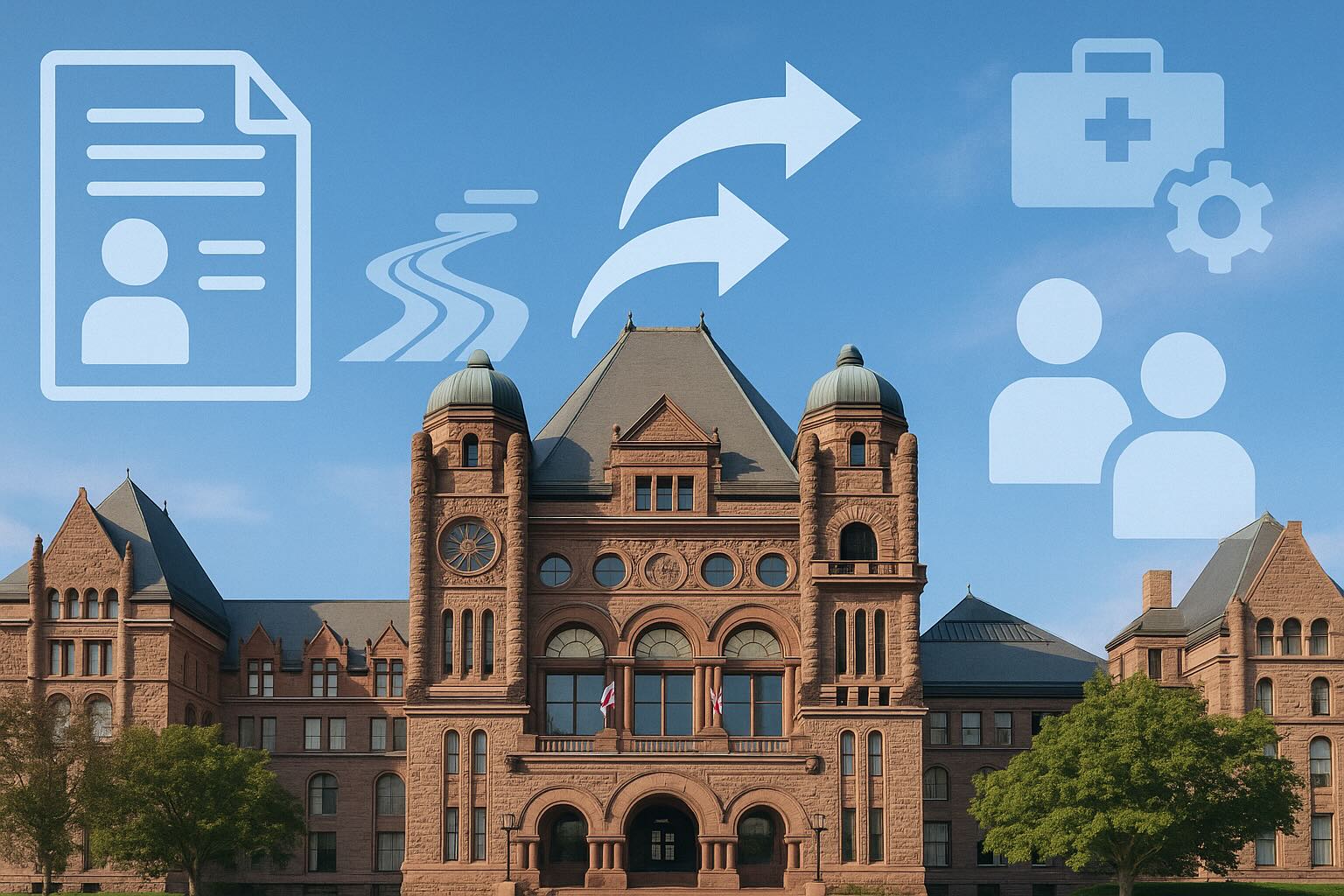
This past Labour Day, the Government of Ontario announced a landmark legislative reform aimed at eliminating the administrative hurdles faced by professionals from other Canadian provinces seeking to work in Ontario. This new framework, dubbed "As of Right," is set to fundamentally change the certification model for regulated professions.
According to a news release from David Piccini, Ontario’s Minister of Labour, Immigration, Training and Skills Development, this reform represents "historic measures" with the goal to "tear down barriers to create more opportunities for workers and businesses, building a stronger province and country."
Core Change: Certification Time Reduced from Months to Ten Days
Currently, a professional certified in another Canadian province or territory often faces a lengthy process of qualification recognition and registration that can take several months, or even up to half a year, before they can practice in Ontario. This long waiting period hinders the rapid flow of talent and impacts the province's economic vitality.
The "As of Right" framework, set to be implemented on January 1, 2026, will completely transform this situation. Under the new rules, professionals holding a valid license from another Canadian jurisdiction can obtain preliminary authorization to begin working in Ontario within just 10 business days after submitting their application and having their credentials validated by the relevant provincial regulatory authority.
Professionals with this initial authorization will have up to six months to complete the full registration process with their Ontario regulatory body while already employed. This change covers over 50 Ontario regulatory bodies and approximately 300 certifications, including key technical roles such as architects, engineers, and electricians. Given that about 20% of professions in Canada are regulated, the impact of this new policy is extensive.
It is important to note that these regulations apply only to regulated professions; workers in non-regulated occupations are not affected.
Special Pathway for the Healthcare Sector
The new framework gives special attention to the healthcare sector, creating an expedited pathway for certain in-demand medical professionals. The following two groups of professionals will benefit from these new rules:
- Healthcare workers from other Canadian provinces and territories, including:
- Physicians and Surgeons
- Registered Nurses (RNs) and Registered Practical Nurses (RPNs)
- Nurse Practitioners (NPs)
- Respiratory Therapists
- Medical Laboratory Technologists
- Specific healthcare workers from a U.S. state or the District of Columbia, including:
- Physicians or surgeons board-certified by the American Board of Medical Specialties (ABMS) or the American Osteopathic Association (AOA)
- Registered Nurses, Registered Practical Nurses, or Nurse Practitioners
These eligible healthcare professionals can begin working in Ontario almost immediately after meeting 10 specific conditions, without needing to pre-register with one of Ontario's health regulatory colleges. However, other regulated healthcare professions such as pharmacists, dentists, and psychiatrists are not currently included in this fast-track program.
Potential Impact on Immigration Applicants
For applicants planning to immigrate to Canada through the Ontario Immigrant Nominee Program (OINP), this reform is undoubtedly a positive signal. Several OINP streams, particularly the Employer Job Offer streams like the Foreign Worker Stream and the In-Demand Skills Stream, often require applicants to have relevant work experience or a job offer, many of which are in regulated professions.
The implementation of this new policy means that new immigrants (regardless of their initial province of landing in Canada) can have their professional credentials recognized in Ontario much faster. This will enable them to meet the OINP's requirements for local work experience or a job offer more quickly, paving the way for their permanent residency application. Even for candidates applying through the federal Express Entry system (such as Ontario's Human Capital Priorities Stream or Skilled Trades Stream), enhanced labour mobility means it will be easier to find suitable professional work in Ontario after landing.
Promoting Two-Way Talent Flow
Ontario's reform is not unilateral. The provincial government has stated it is also actively collaborating with other provinces and territories to ensure that Ontario-certified professionals can also work elsewhere in Canada more easily. To date, Ontario has signed 10 reciprocal agreements with various provinces and territories to jointly promote domestic talent mobility. This process is facilitated by the fact that most regulated professions in Canada share similar occupational standards across jurisdictions, which simplifies mutual recognition of qualifications.
Workers, employers, or regulators with questions about labour mobility in Canada can visit the relevant official website for frequently asked questions.









